Search Results for 'High Sheriff'
8 results found.
Walker & Nihill's Distillery, Castlebar
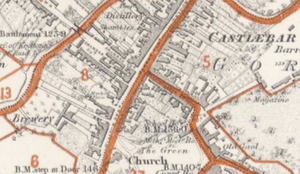
In the spring of 1821, Laurence Nihill actively sought a partner for his Castlebar distillery. He offered an 'active role' in the business in return for a payment of between £1,000 and £1,500. The enterprise was located in what is now the car park between Main Street and Mill Lane.
The turbulent life of Col Richard Martin MP - In three acts
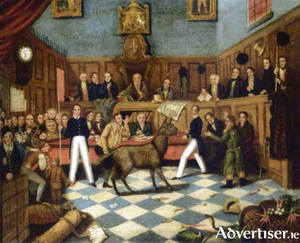
Week IV. Further humiliation was heaped upon Colonel Richard Martin, who sought redress for the ‘dishonour to his bed, the alienation of his wife’s affection, the destruction of his domestic comfort, the suspicion cast upon the legitimacy of the wife’s offspring, and the mental anguish which the husband suffers’ (such was the legal language of the day), during his divorce trial against John Petrie, to be awarded only £10,000., exactly half of the £20,000. which he felt justified in demanding.
A hero’s welcome in New York for first Galway Line ship
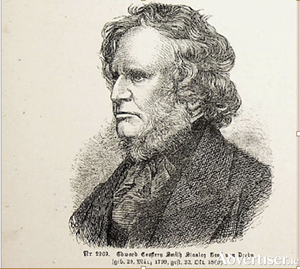
The unfortunate collision of the Indian Empire into the well marked Margaretta Rock in the middle of Galway Bay was a blow to the newly established Galway Line. But by no means was it a knockout. Galway’s vaulting ambition to open a new ‘highway between the old and new worlds’ took on an even more determined energy. The exploitation of steam-power, driving ever bigger ships and faster trains, led to wild speculation as to what could be achieved even from Galway, in the middle of the 19th century.
Did a midsummer murder silence a guilty pilot?
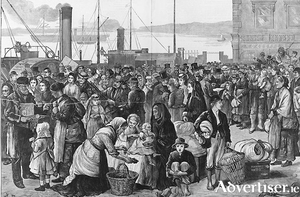
In June 1858 Galway town was in a fever of wild speculation and excitement. Its vision for a magnificent transatlantic port off Furbo, reaching deep into Galway Bay, where passengers from Britain, and throughout the island of Ireland, would be brought to their emigration ship in the comfort of a train, now faced being scuppered by the apparent criminal intent of the two local pilots.
A sheriff once roamed these here parts
The High Sheriff of Mayo was the British Crown’s representative in the county from the post’s creation in 1583 until the establishment of the Irish Free State in 1922. In a country where ownership of land carried huge prestige, the landed had to protect what they held by securing positions of power. So it was in County Mayo that the dominant families of Browne, Bingham and Gore isolated the role of High Sheriff largely for themselves up until the 19th century at least, from which time family names such as O’Donel, Knox, Blake and others appear in the records as holders of the office.
Did a midsummer murder silence a guilty pilot?
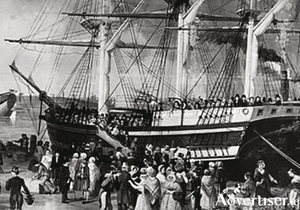
In June 1858 Galway town was in a fever of excitement. Its vision for a magnificent transatlantic port off Furbo, reaching deep into in Galway Bay, where passangers from Britain, and throughout the island of Ireland, would be brought to their emigration ship in the comfort of a train, could now be scuppered by the apparent carelessness of the two local pilots.
Dick Martin’s desperate struggle to retain his Galway seat
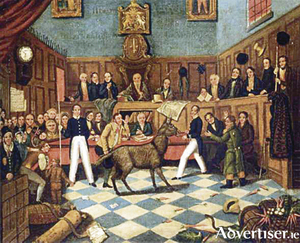
The present national election is a mild and gentle affair, compared to some previous occasions though none reached the madness and abandonment of the notorious Galway election of 1826.
‘God grant peace to America’
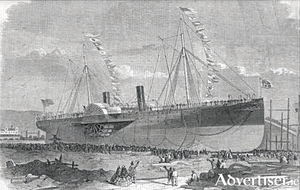
Despite Fr Peter Conway’s row with the Protestant rector of Headford, the Rev Dean Plunkett (and there were some appalling battles against Protestants to come), he got on surprisingly well with the landlord of the whole area, the impressively named Richard Mensergh St George, Esq, also the High Sheriff. Initially, when Conway asked him if he would donate land for a church for his Catholic tenants, the request was turned down flat. But out of the blue, St George invited Conway to his house one day and offered him an acre of ground ‘anywhere on his estate’, rent free forever; furthermore, he gave an additional seven acres of land for a priest’s house, and a subscription of £20 for a school.

